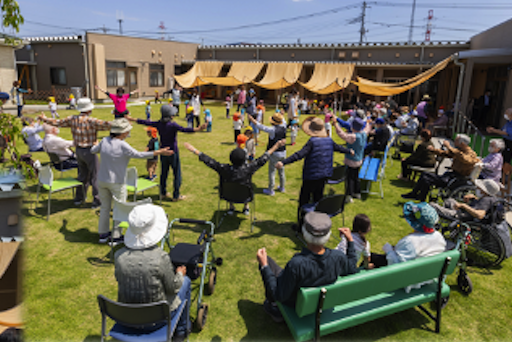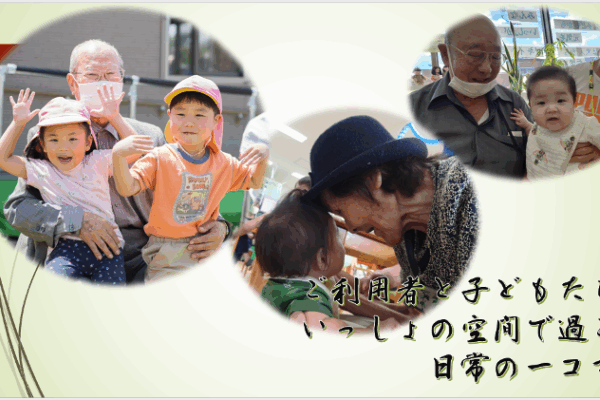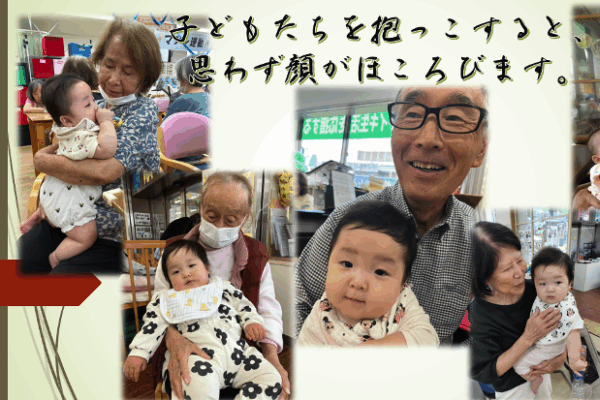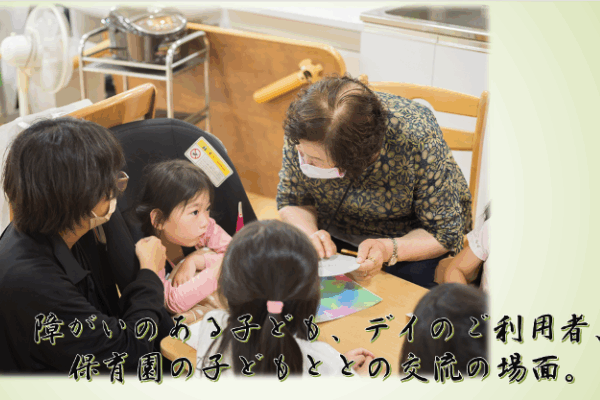2024 HAPI Japan Best Practice Winner
THE PROBLEM
Japan’s health ministry estimates from 2024 found that more that 5 million people would be living with dementia by 2030, and that by 2040, 1 in 3 people aged 65 or over would have mild cognitive impairment. Communities are grappling with how best to provide care for the growing number of older people living with dementia while still offering an inclusive and safe place to live. This is a particularly pressing issue in the current era of nuclear families, as intergenerational connections have dissipated.
THE INNOVATION
Rehab Home Ippo was established in 2011 as a small day care service for older people. Four years later, it combined that service with a small nursery school. That led to an important discovery: clients who, despite the staff’s best efforts, never smiled or engaged in activities suddenly lit up when they saw the children at the nursery. That realization triggeredan innovative new approach to the company’s work.
Given that the company’s philosophy is to provide services for older people that give them a sense of belonging, the staff decided to create a space where multigenerational exchanges could be carried out by combining the senior day care service, nursery school, and later a daycare for severely mentally and physically handicapped children in one facility. Although the nursery rooms and the day service floor are separated, it was designed in a way that allows people to freely come and go between each other’s spaces with staff support and supervision.
For the multigenerational approach to work, the company had to ensure that all employees understand, accept, andagree with their philosophy and are able to put it into practice in the field. In the past, the staff of the nursery school knew about children, and the staff of the adult day care service knew about their clients, but in the new system, they are involved to some degree with all clients, so they are sharing their knowledge and caregiving tasks.
At first, the novelty of the idea made it challenging to gain the understanding of the local government. However, by designing such that the three facilities operate according to the specific rules for each type of service, Rehab Home Ippo was able to gain the local authority’s approval.
They have also conducted scientific studies to measure the impact of the intergenerational interaction. A study was done using emotion recognition AI by photographing facial expressions during intergenerational interaction between the elderly and children. Analyzing the movement of facial muscles in videos of elderly people and young children to quantify the clarity of their emotions, they were able to show the increased rate of joy expressed through the interactions.
For clients with dementia, they gained strength as they took care of and engaged with the children. This is in part because users of the day care service have been able to acquire the role of assisting the staff in “taking care of the children,” giving them a new sense of purpose and satisfaction. It shifts the narrative of people with dementia being seen only as people who are in need of care from others. The children, on the other hand, received lots of affection, and the synergistic effect has earned praise from parents of the nursery school students. Rehab Home Ippo’s approach has led to success, with the occupancy rate for the adult day care services over 80% of capacity, compared to the national average of 60%.
LINKS





